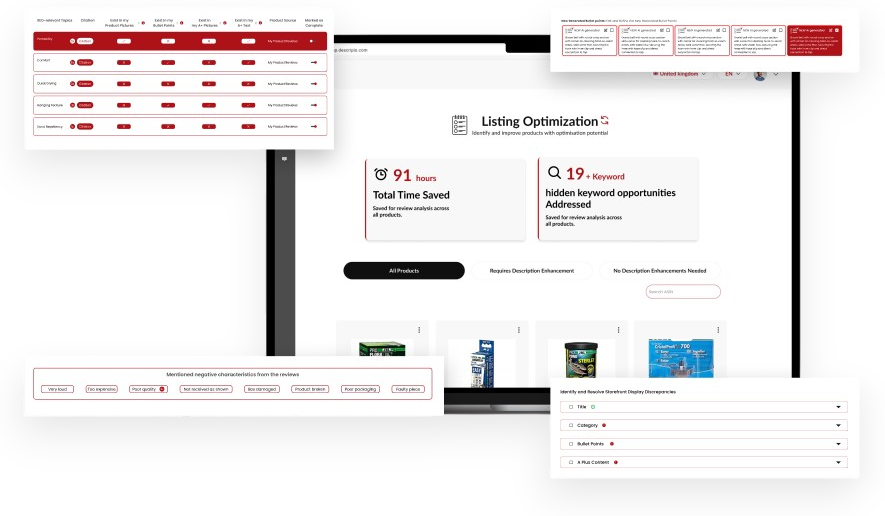Over 7 years of scientific research is put into Descripio
Our eCommerce research has been published in international publications and cited over 1,400 times

Selected Publications
A complete list of all publications can be found here:
# Sponsored# Ad: Exploring the Effect of Influencer Marketing on Purchase Intention
Companies spend an increasing amount of money in influencer marketing, whereby individuals with a sizable social network of follower endorse products of companies. Companies hope that the influencers, who promote the products, generate purchase intention for their followers. In this study, we draw on existing literature and apply a fuzzy set Qualitative Comparative Analysis (fsQCA) to evaluate which configurations of the perceptions of the ad, the perceptions of the influencer and the perceptions of the product generate purchase intention. We reveal two distinct configurations, that explain how the different perceptions work together and generate purchase intention. We thereby contribute to theory by revealing that not one, but two different configurations of perceptions generate purchase intention. We provide practical insights for companies and for influencers, as credibility of the influencer has a strong causal relationship with purchase intention. Additionally, we provide evidence that ad disclosure does not harm purchase intention.
Herd behavior in social media: The role of Facebook likes, strength of ties, and expertise
Link : https://scholar.google.de
When do social media users click on sponsored content or intend to visit the website at a later time? A qualitative comparative analysis (QCA) using arguments based on herd theory, strength of ties, and social distance shows that only “likes” from socially close and knowledgeable users can consistently generate click-through or view-through intentions. Considering social tie strength in a herd behavior context, the analysis of sufficient configurations for click- and view-through intentions provides a nuanced perspective on social media user behavior and social influence. For instance, click-through intention requires observing a “like” from a close person, while view-through intentions can also develop after observing “likes” from less close acquaintances, yet in the last case only if the user assumes the acquaintance is better informed regarding the sponsored content.
Paid, owned and earned media: a qualitative comparative analysis revealing attributes influencing consumer’s brand attitude in social media
Link : https://scholar.google.de
This paper examines how companies can use paid media (referring to sponsored posts), owned media (company posts) and earned media (influencer post) to create a positive brand attitude. Based on the advertising value model, this paper takes a configurational approach and uses fuzzy set qualitative comparative analysis (fsQCA). The analysis reveals a typology of five types of media, which influence consumers’ brand attitude positively. We contribute to research by providing a typology of paid, owned and earned media, which can guide companies to create a positive brand attitude.
The curse of mobile marketing: a mixed methods study on individuals’ switch to mobile ad blockers
Link : https://scholar.google.de
Mobile marketing investment continues to rise steadily even though online publishers have not realized the desired returns, due to increased use of mobile ad blockers. In this study, we take a mixed methods approach, embracing qualitative, quantitative and configurational approaches, to understand why individuals switch to using mobile ad blockers. We draw on the pull-push-mooring model to evaluate what configurations of pull, push and mooring factors influence individuals’ decision to switch to using mobile ad blockers, identifying four distinct configurations of influencing factors resulting in the intention to switch. Furthermore, we specify the unequal effects of influencing factors and validate the quality of our results. Our research deepens the theoretical understanding of the phenomenon of switching to mobile ad blockers and provides valuable implications to online publishers facing the challenge of rising mobile ad blocker use.
Our Research Network
University of Bamberg (Germany)
Improve your listings and increase your potential on Amazon
Go beyond simple keywords and discover untapped potential from reviews. Our AI tools help you make your listings relevant to the search algorithm and tailored to your customers' needs. With Descripio, you save time and increase your visibility with ready-to-use, optimized bullet points and A+ content.
